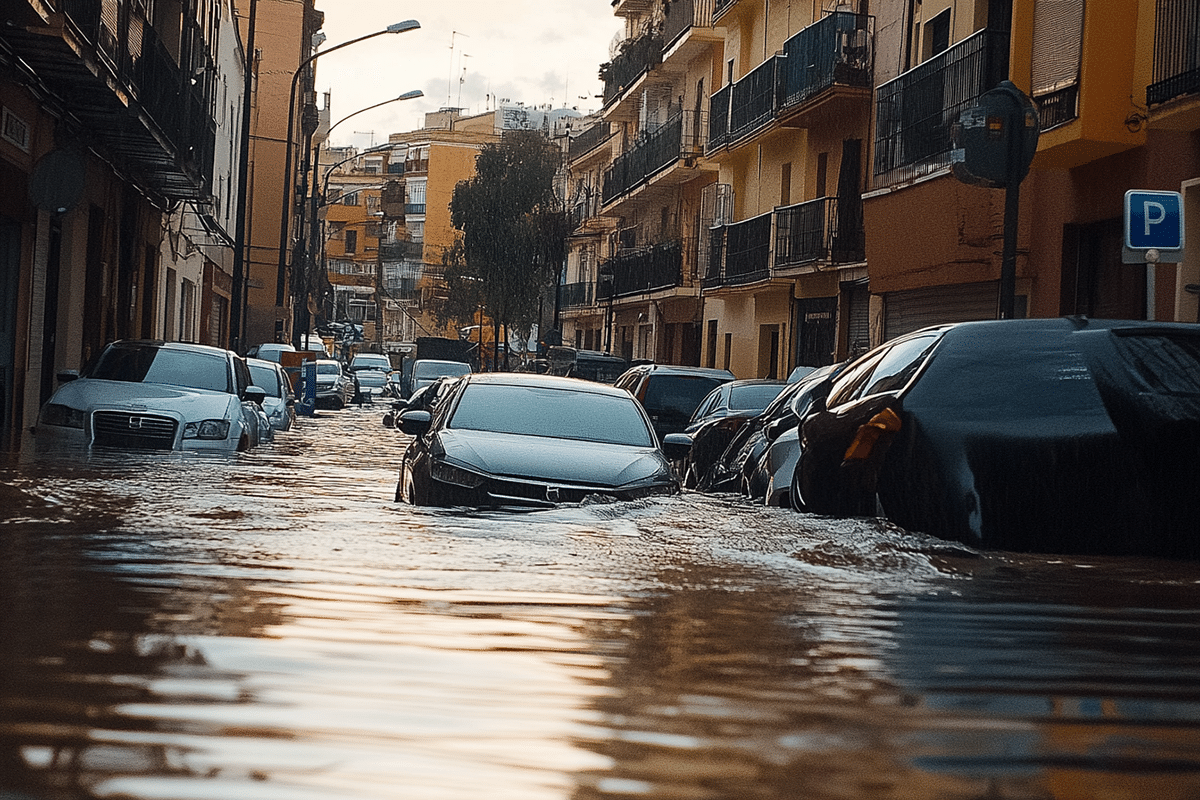A catastrophic series of flash floods has ravaged eastern Spain, resulting in the deaths of at least 72 people. The floods, described as the worst natural disaster to hit Spain in recent history, caused extensive damage across a wide area, disrupting transport, destroying infrastructure, and leaving communities devastated.
The torrential rainfall began on Tuesday and continued through Wednesday, inundating regions from Malaga to Valencia. The sudden deluge turned streets into rivers, sweeping away cars, household items, and debris, while muddy torrents rushed through villages at high speeds. Emergency services deployed helicopters and rubber boats to rescue stranded residents, with many people forced to take refuge on rooftops or in upper floors of buildings.
The majority of fatalities were reported in Valencia, where 70 people lost their lives. The nearby region of Castilla La Mancha confirmed two additional deaths. Several towns remain heavily affected, with communities reporting residents still missing. In Utiel, six residents were confirmed dead, and local authorities warned that many people were still unaccounted for. In the village of Letur, search efforts are ongoing for five individuals who disappeared during the storm.
Spain’s government declared three days of mourning to honor the victims, with the Prime Minister pledging all available resources to aid recovery and assist grieving families. Rescue teams, including more than 1,600 soldiers, have been deployed to the affected areas, while regional and national governments coordinated efforts through a crisis management committee.
The elderly were among the most vulnerable during the disaster, as many struggled to escape rising waters. In one nursing home, waters reached knee-level, leaving residents trapped until military personnel arrived to assist. In rural areas, emergency responders used unconventional means, such as bulldozers, to evacuate residents from isolated homes.
The floods severely impacted transport infrastructure. A high-speed train derailed near Malaga, although no injuries were reported. Train services between Valencia and Madrid were suspended, and many commuter lines remain blocked. Valencia’s airport saw around 1,500 passengers stranded overnight due to flight cancellations. Fallen trees and wrecked vehicles rendered many roads impassable, further hampering rescue operations, while power outages and overloaded phone networks disrupted communications.
The extreme weather also included a rare hailstorm, which damaged greenhouses, shattered car windows, and compounded the chaos caused by the floods. Tornadoes were reported in some areas, adding to the destruction. Spain’s national weather service described the rainfall as unprecedented in parts of Valencia, which has experienced increasingly frequent extreme weather events in recent years. The storm has highlighted the challenges Spain faces from climate change, with prolonged droughts weakening the land’s ability to absorb water, exacerbating the effects of sudden downpours.
As the floodwaters receded, residents began to assess the scale of the destruction. Streets were left covered with thick layers of mud and debris, making entire neighborhoods unrecognizable. Damaged vehicles piled on top of one another, and fallen trees blocked access to many areas. In Barrio de la Torre, a village in Valencia, residents described the scene as a complete wreck, with nearly everything left unusable.
Authorities warned that the death toll could rise, as rescue teams continue to search for missing persons in hard-to-reach areas. Relatives of the missing have taken to social media and local radio to appeal for information about their loved ones. In one incident, a delivery driver near Ribarroja, one of the worst-hit areas, sent a distress message before disappearing, prompting a frantic search by his family.
Regional leaders urged residents to remain indoors and avoid travel while cleanup and rescue operations are underway. Power outages and blocked roads continue to pose challenges for emergency responders.
The European Union has offered support, including the deployment of its Copernicus satellite monitoring system to assist in coordinating rescue efforts. The EU’s civil protection mechanism is also available to provide further assistance if requested by Spain.
Despite the receding storm, the damage left behind has disrupted life for thousands. Soccer matches for both Valencia and Levante have been postponed, and many residents continue to salvage what little they can from their waterlogged homes. Meanwhile, northern regions, including Barcelona, remain on alert as the storm moves up the coast.
This disaster underscores the growing impact of extreme weather events in Spain, with experts linking the increased frequency of such incidents to climate change. As the country recovers from severe drought, the need to adapt to these unpredictable patterns has become more pressing.





